9/11 Commission Hearings
9/11 Commission Hearings
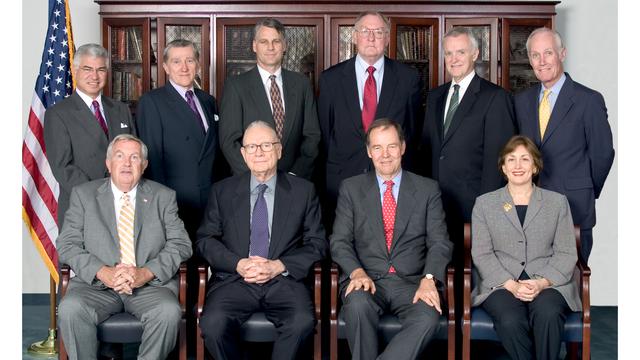
Table of Contents
| Public Hearing #01 (March 31 – April 01, 2003) | Public Hearing #02 (May 22 – 23, 2003) | Public Hearing #03 (July 09, 2003) |
| Public Hearing #04 (October 14, 2003) | Public Hearing #05 (November 19, 2003) | Public Hearing #06 (December 08, 2003) |
| Public Hearing #07 (January 26 – 27, 2004) | Public Hearing #08 (March 23 – 24, 2004) | Public Hearing #09 (April 08, 2004) |
| Public Hearing #10 (April 13 – 14, 2004) | Public Hearing #11 (May 18 – 19, 2004) | Public Hearing #12 (June 16 – 17, 2004) |
| ********** | Final Report (July 22, 2004) | ********** |
Public Hearing #01
Recording of the first public hearing held by the National Commission on Terrorist Attacks upon the United States at the Alexander Hamilton U.S. Custom House in New York City.
March 31, 2003
The purpose of this hearing was to engage those whose lives were changed by the events of September 11 in a public dialogue about the Commission’s goals.
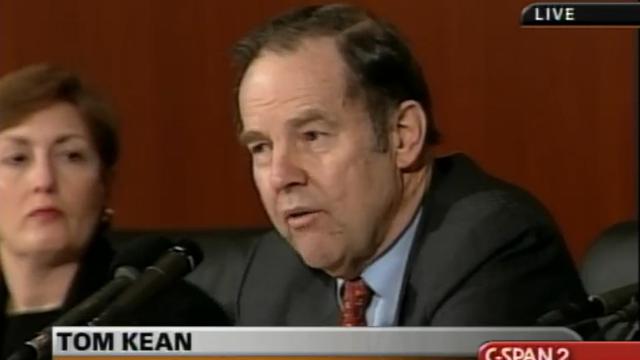
In the commission’s first public hearing, officials testified about the September 11, 2001 attacks on the World Trade Center and Pentagon, including George Pataki, Governor of New York and Michael Bloomberg, the Mayor of New York City.
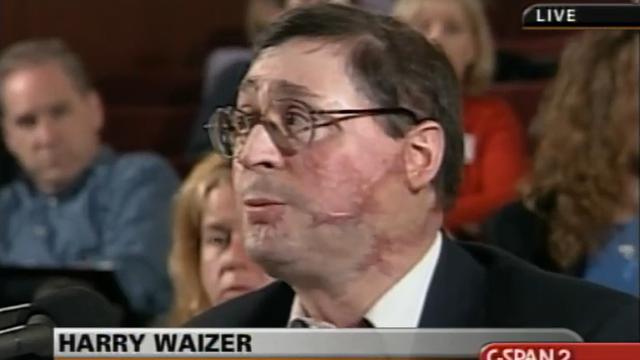
Survivors and relatives of victims of the September 11, 2001 terrorist attacks on the U.S. testified about their experiences.
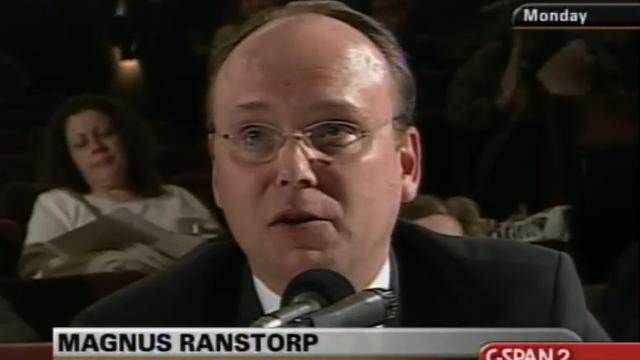
This section includes the testimony from professionals in various fields on the September 11th attackers, intelligence, and counter-terrorism policy.
April 01, 2003
This hearing specifically addresses the topics of borders, money, and transportation; law enforcement, domestic intelligence, and homeland security; and immediate response to the attacks.
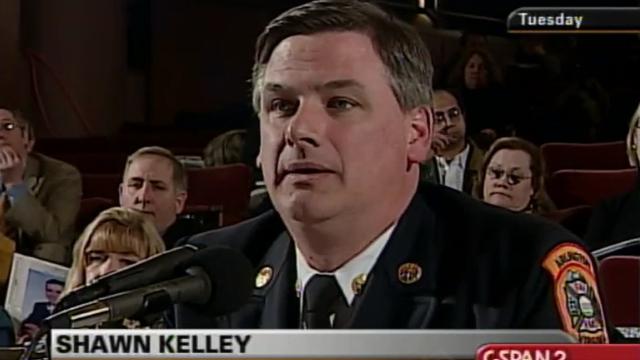
Several panels of witnesses testified about the September 11 terrorist attacks. Topics included transportation security before and after September 11, al-Qaeda and its finances, the United Nations, U.S. border security, U.S. intelligence capabilities, and bioterrorism.
Public Hearing #02
Recording of the second public hearing held by the National Commission on Terrorist Attacks Upon the United States at the Hart Senate Office Building in Washington, D.C.
May 22, 2003
This hearing addresses four topics, which include the commission mandate and objectives, intelligence oversight and the joint inquiry, affected constituencies, and the state of civil aviation security on September 11th.
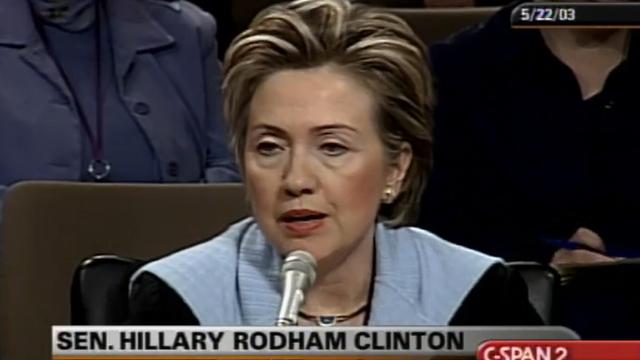
In this session, legislators urged the commission to forcefully investigate government intelligence and operational shortcomings prior to the attacks and to investigate links between foreign governments and terrorist organizations. The final panel testified about the impact of the attacks on their constituencies
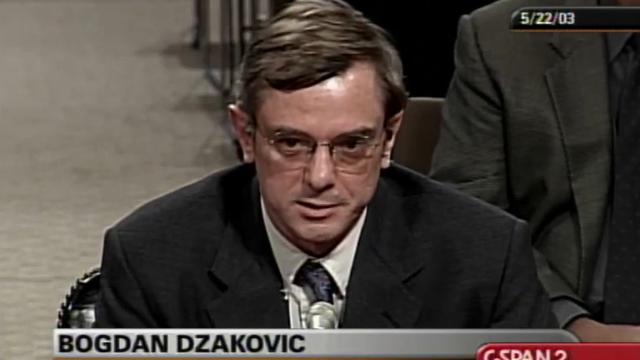
This section includes the panel on civil aviation security with testimony from representatives of the Federal Aviation Administration, the Department of Transportation, the Air Transport Association of America, and the Transportation Security Agency.
May 23, 2003
This hearing addresses four topics, which include the commission mandate and objectives, intelligence oversight and the joint inquiry, affected constituencies, and the state of civil aviation security on September 11th.
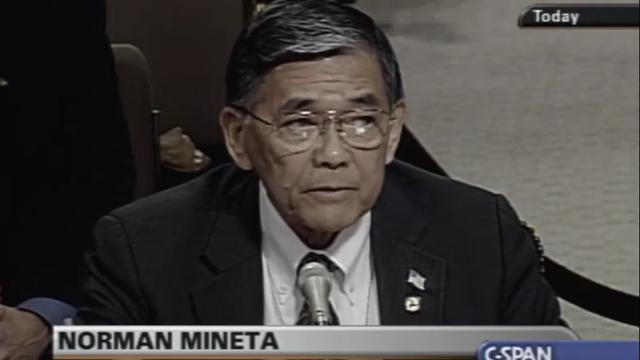
This section includes the panel on civil aviation security, with testimony from Norman Mineta, Major General Craig McKinley, and Lieutenant General Mike Canavan on the attacks and the response to the 9/11 attacks.
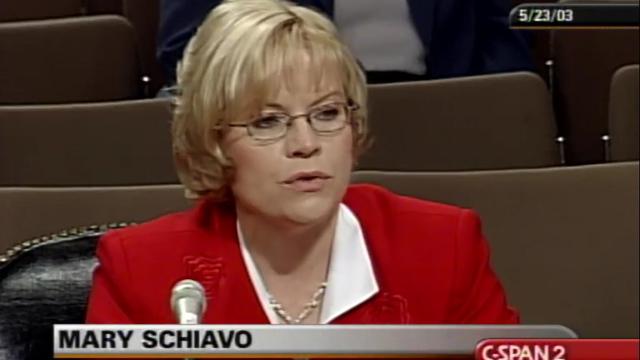
This section concludes the panel on civil aviation security, with testimony from Stephen McHale, Major General O.K. Steele, and Mary Schiavo on reforming civil aviation security.
Public Hearing #03
Recording of the third public hearing held by the National Commission on Terrorist Attacks upon the United States at the Russell Senate Office Building in Washington, D.C.
July 09, 2003
The one-day session focused on “Terrorism, al Qaeda, and the Muslim World.”
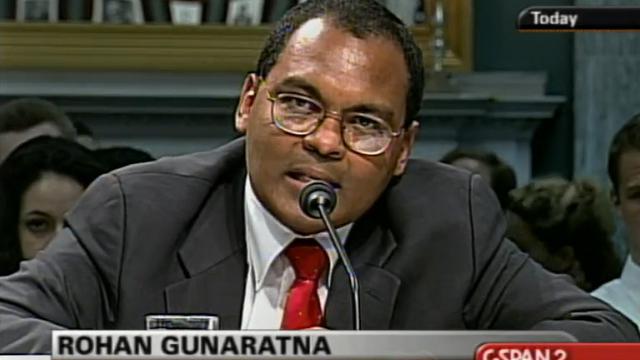
Witnesses testified before the National Commission on the September 11 Terrorist Attacks about the origins and operations of the Al-Qaeda terrorist network. Among the topics they addressed were the influence of Islamic and Middle Eastern culture, the teachings of fundamentalist movements, and levels of terrorist threats as a result of efforts to combat terrorism.
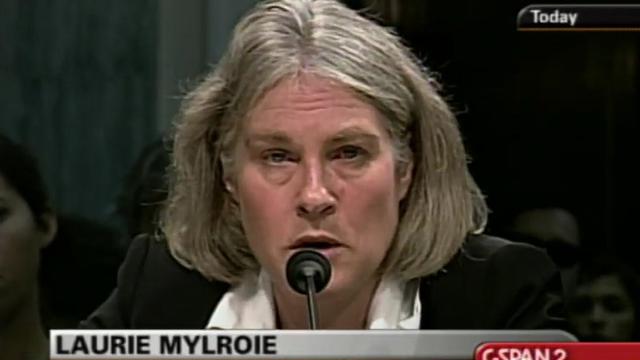
Middle East scholars testified before the National Commission on the September 11 Terrorist Attacks about state sponsored terrorism in several states including Iraq, Syria and Iran. Among the topics they addressed were motives for sponsorship of terrorist groups, means of sponsorship, and the various groups sponsored in the region.
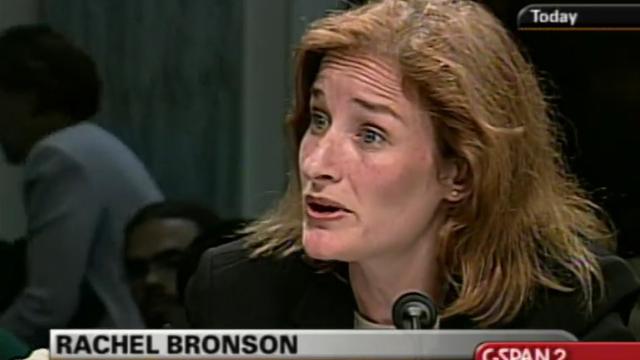
Witnesses testified before the National Commission on the September 11 Terrorist Attacks about the connections between Islam, jihad, and terrorism. Among the topics they addressed were Islamic culture and politics, the impact of U.S. policy in the Middle East, and American understanding of Arab society. They also talked about ways to improve relations with Islamic countries in a manner that allows mutual understanding.
Public Hearing #04
Recording of the fourth public hearing held by the National Commission on Terrorist Attacks upon the United States at the Russell Senate Office Building in Washington, D.C.
October 14, 2003
The Commission heard testimony from two sets of witnesses on leadership of U.S. intelligence, intelligence and national security policy, and the effectiveness of warning against transnational threats.
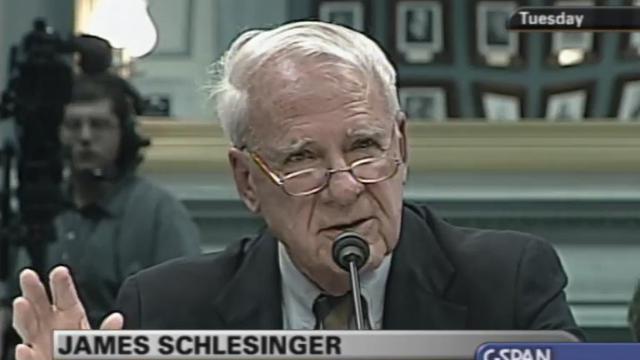
Witnesses testified about ways to improve the effectiveness of the U.S. intelligence community against terrorist threats. Among the issues addressed were the leadership, organization, performance, and funding of intelligence agencies.
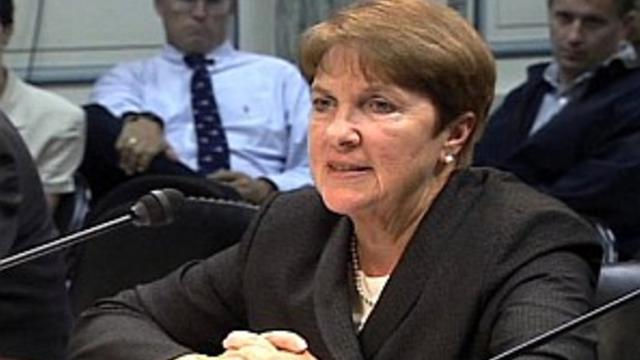
This section includes the third panel on the warning on transitional intelligence threats, with testimony from Richard Kerr, Mary O. McCarthy, and John Gannon.
Public Hearing #05
Recording of the fifth public hearing held by the National Commission on Terrorist Attacks upon the United States at Drew University in Madison, New Jersey.
November 19, 2003
The Commission heard from New Jersey Governor James E. McGreevey; four panels of business officials and federal, state, and local government representatives; and individuals working to enhance emergency preparedness in the private sector.
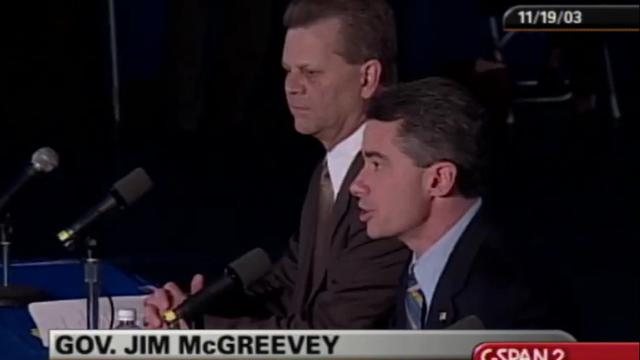
This section includes the opening statements from Chairman Kean and Governor McGreevey, in addition to the first panel on risks and consequences of Terrorism for the private sector.
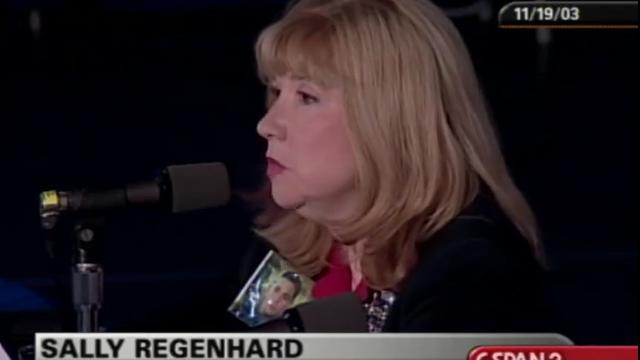
This section includes the panel on skyscraper safety issues from 9-11 family members with testimony from Monica Gabrielle and Sally Regenhard.
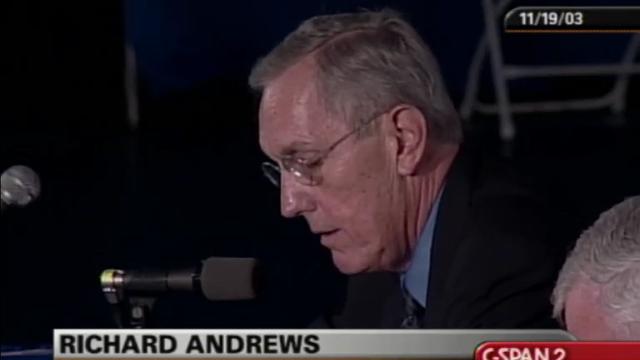
This section includes the panel on public/private initiatives since 9-11, with testimony from Michael F. Byrne, Dennis J. Reimer, and Richard A. Andrews.
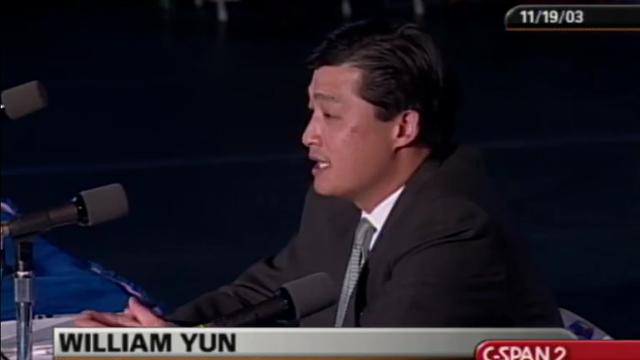
This section includes multimedia presentations of initiatives across the United States from Kings County, Washington, and the International Association Assembly Managers and the panel on private sector experience on 9-11 with testimony from William Y. Yun.
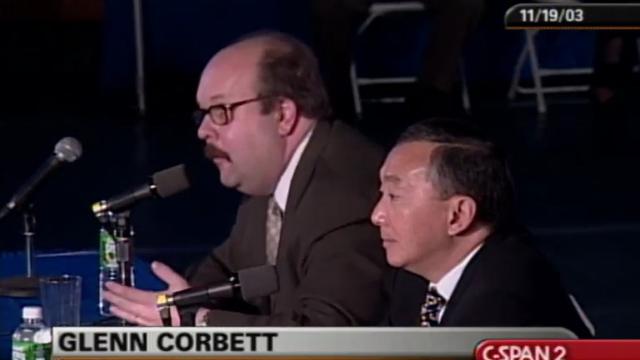
This section includes the panel on standards for emergency management and business continuity with testimony from Glenn Corbett and Randall Yim.
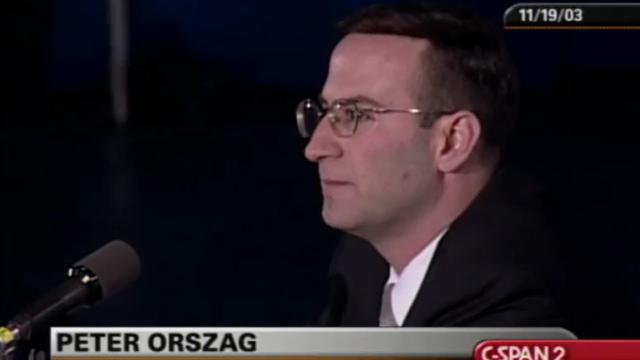
This section includes the panel on future strategies for private sector preparedness with testimony from William G. Raisch, Peter R. Orszag, James Haviaris, and Thomas Susman.
Public Hearing #06
Recording of the sixth public hearing held by the National Commission on Terrorist Attacks upon the United States at the Russell Senate Office Building in Washington D.C.
December 08, 2003
The Commission heard testimony from four panels of witnesses on domestic intelligence collection, protecting privacy while preventing terrorism, and the use of immigration laws to combat terrorism.
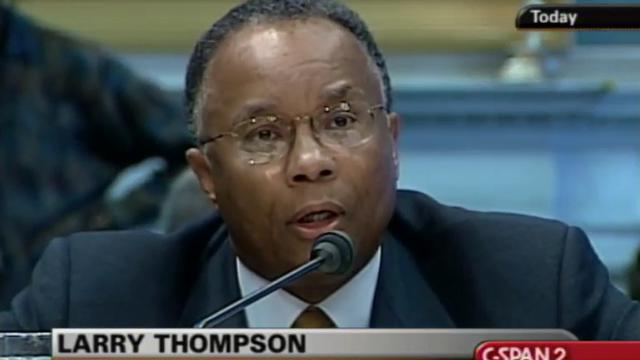
Larry Thompson and Stephen Schulhofer testified about intelligence collection measures in relation to counterterrorism efforts. Among the issues they addressed were the impact of broader intelligence collection rules on national security, provisions of the Patriot Act, information sharing, and ensuring civil liberties.
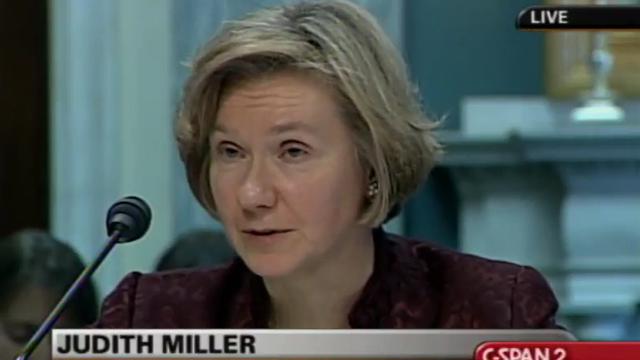
Former and current national security officials testified about national security needs, information technology, and civil liberties issues. Among the topics they addressed were collecting and maintaining records on potential terrorists, information sharing technology, surveillance of the public, and civil liberties issues.
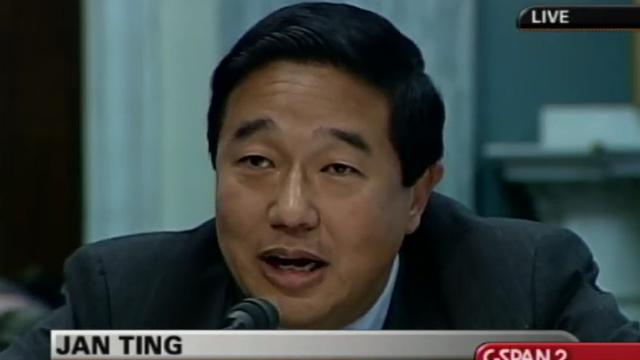
Witnesses testified about U.S. immigration policy following September 11, 2001 terrorist attacks. Among the issues they addressed were detention of aliens, the treatment of enemy combatants, the right to counsel, border security, and civil liberties.
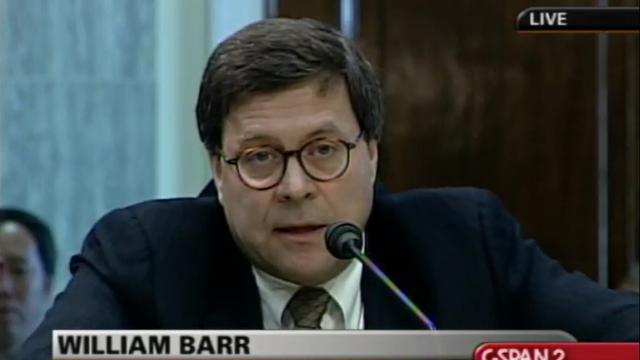
Witnesses testified about intelligence collection and sharing, as well as organizing government agencies to improve domestic intelligence. Among the topics they addressed were restructuring intelligence operations, improving methods of information gathering and collection, coordinating investigative efforts, and restructuring intelligence organizations.
Public Hearing #07
Recording of the seventh public hearing held by the National Commission on Terrorist Attacks upon the United States at the Hart Senate Office Building in Washington, D.C.
January 26, 2004
This hearing specifically addresses the topics of border and aviation security. In addition, several staff statements from the Commission were delivered during the course of the proceedings.
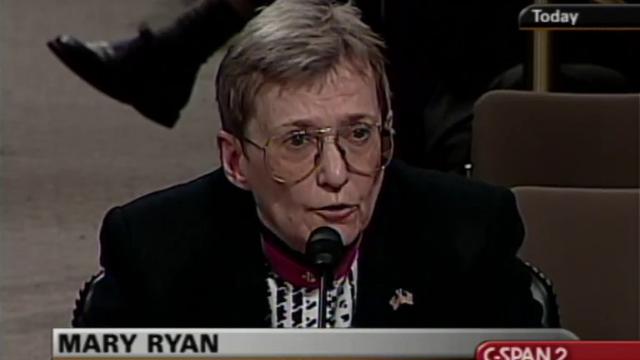
Witnesses testified before the September 11 commission about border security and ways in which September 11, 2001 terrorists managed to enter the U.S. They also talked about the visa process, consular operations, and mistakes made by immigration and customs officials.
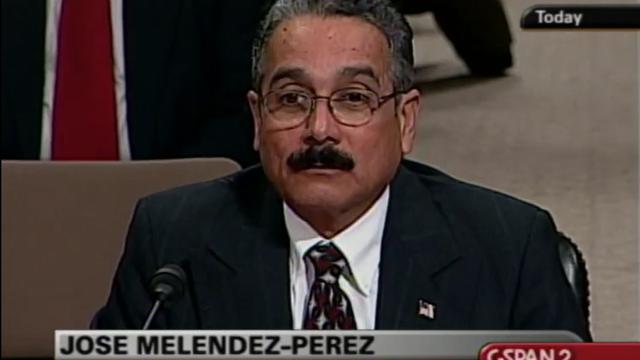
Jose Melendez-Perez, Customs & Border Protection Inspector with the Department of Homeland Security, testified about an interview he conducted with a Saudi national, Mohamed al-Qahtani, who investigators believe was trying to establish contact with September 11, 2001 terrorists in the U.S. He also talked about immigration policy and proposed improvements in screening foreign visitors.
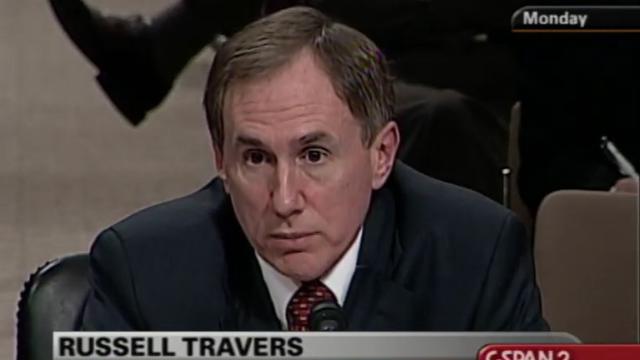
Witnesses testified about information gathering and sharing among government agencies and establishing effective terrorist watchlists. They also talked about current efforts to streamline interagency cooperation in tracking and locating potential terrorists.
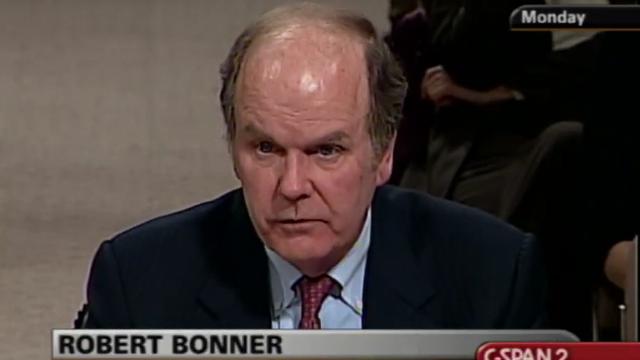
Witnesses testified about the events leading up to the September 11, 2001 terrorist attacks on the U.S. and actions taken to improve customs and border security in the aftermath of the attacks. Among the topics they addressed were new immigration and customs regulations, screening containers and ensuring secure trade, and implementing terror alert levels.
January 27, 2004
This hearing specifically addresses the topics of border and aviation security. In addition, several staff statements from the Commission were delivered during the course of the proceedings.
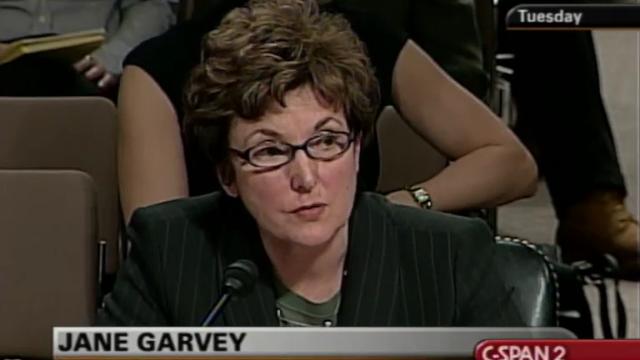
Witnesses testified about passenger screening procedures before and after the September 11, 2001 terrorist attacks on the U.S. Among the topics they addressed were standard operating procedures, threat assessment, regulated material, and changes in security procedures implemented following the attacks.
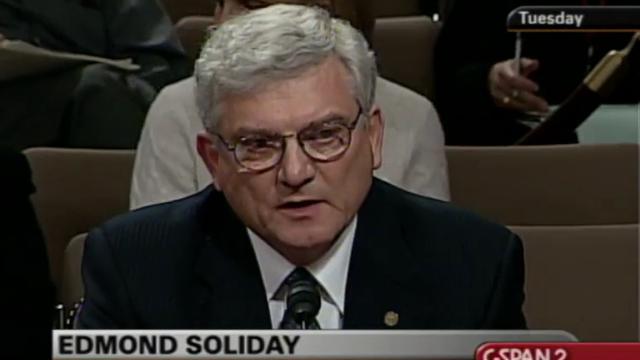
Current and former airline industry officials testified about the events of September 11, 2001 and the airline response to terrorist hijackings, as well as the impact of the attacks on the U.S. They also talked about onboard security measures taken to prevent terrorism.
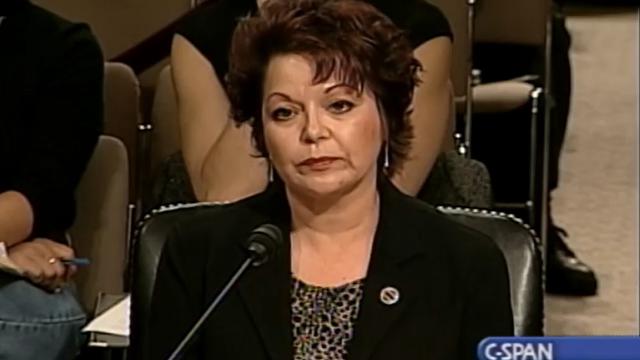
This section includes the staff statement on the four flights in addition to the seventh panel on acts of courage in the sky with testimony from Nydia Gonzalez, who reported on her conversations with Betty Ong, a flight attendant on American Airlines Flight 11.
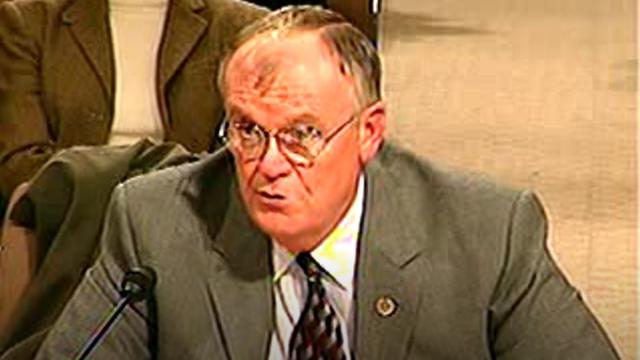
Deputy Secretary Loy reported about the improvements in transportation security being made by the Department of Homeland Security and the efforts of the Transportation Security Administration in establishing a new aviation security regime.
Public Hearing #08
Recording of the eighth public hearing held by the National Commission on Terrorist Attacks upon the United States at the Hart Senate Office Building in Washington, D.C.
March 23, 2004
The two-day hearing investigated the formulation and conduct of U.S. counterterrorism policy, with particular emphasis on the period from the August 1998 embassy bombings to September 11, 2001.
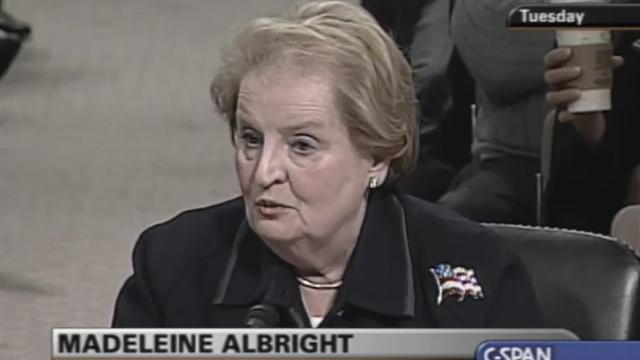
Past and present secretaries of state testified about September 11, 2001 terrorist attacks on the U.S. Among the topics they addressed were intelligence information on al-Qaida, diplomatic efforts to coalitions to fight global terrorism, and the ultimate decision to use military force in response to the attacks.
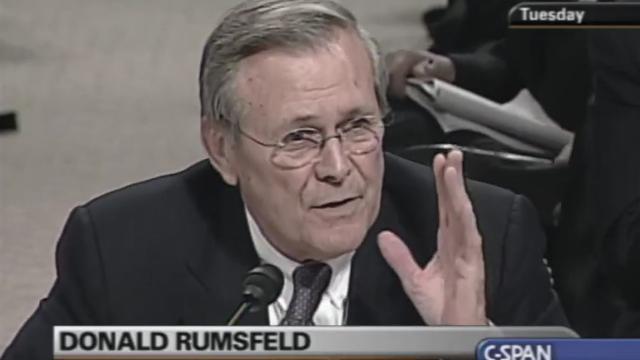
Former and current defense secretaries testified about September 11, 2001 terrorist attacks on the U.S. Among the issues they addressed were intelligence information on terror groups and the attacks, military responses to the September 11 and previous attacks, and various strategies developed under the Clinton and Bush administrations to fight global terrorism.
March 24, 2004
The two-day hearing investigated the formulation and conduct of U.S. counterterrorism policy, with particular emphasis on the period from the August 1998 embassy bombings to September 11, 2001.
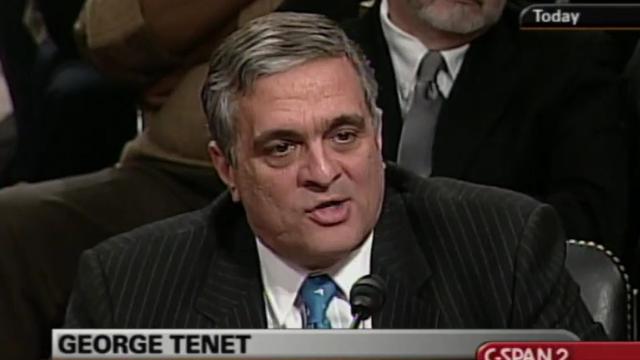
George Tenet CIA Director and John McLaughlin Deputy CIA Director testified before The 9/11 Commission, about intelligence gathering and sharing before and after the September 11, 2001 terrorist attacks on the U.S. They also talked about the level of priority given the terrorist threat by both the Bush and Clinton administrations and responded to several questions about intelligence failures and the process of determining credible threats.
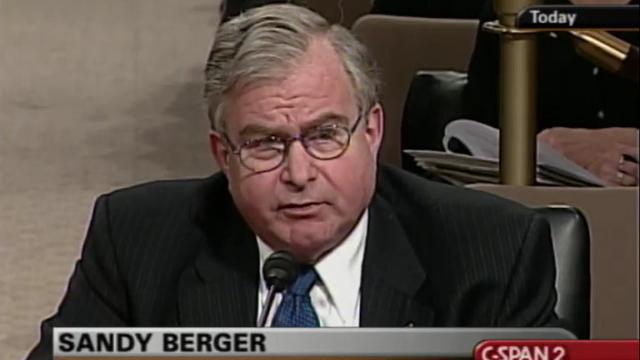
Mr. Berger talked about the September 11, 2001 attacks on the United States. The focus was on Clinton administration intelligence and counterterrorism strategies, and the priority given to the terrorist threat.
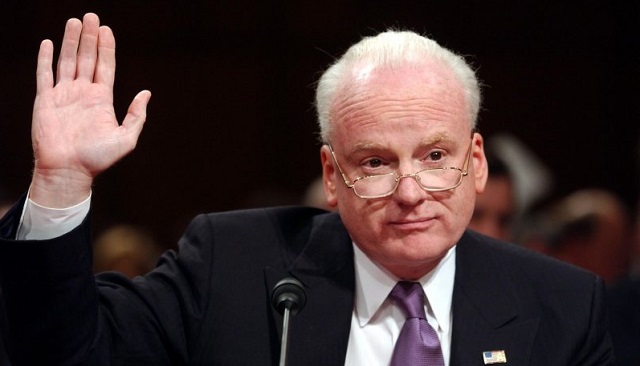
Mr. Clarke testified about his experiences under the Clinton and Bush administration as chief counterterrorism adviser. Among the topics he addressed were the degree of importance placed on the issue by the two administrations, strategies to prevent terrorist attacks and hold terrorists responsible for their actions, and criticisms of both administrations contained in his recently published book on the subject. He also offered a personal apology to the victims’ families for the government’s inability to properly react to the terrorist threat.
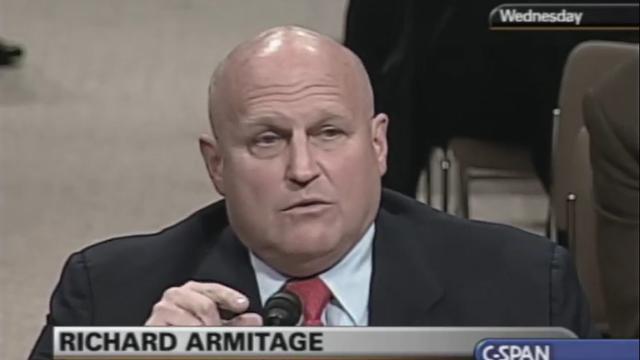
Mr. Armitage testified about Bush administration counterterrorism efforts, the administration’s foreign policy priorities, and the handling of intelligence information before and after the September 11, 2001 attacks on the United States.
Public Hearing #09
Recording of the ninth public hearing held by the National Commission on Terrorist Attacks upon the United States at the Hart Senate Office Building in Washington, D.C.
April 08, 2004
The Commission heard testimony from Dr. Condoleezza Rice, Assistant to the President for National Security Affairs on the formulation and conduct of U.S. counterterrorism policy.
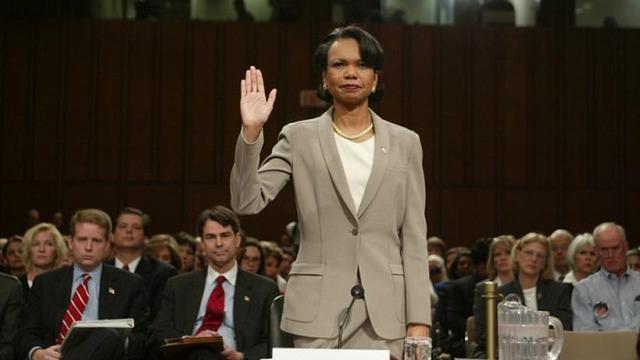
Dr. Rice testified under oath about the Bush administration’s counterterrorism policies before and after terrorist attacks on the U.S. on September 11, 2001. Among the issues she addressed were intelligence gathering procedures, the priorities assigned to known terrorist threats in the first 8 months of the administration, and actions taken in the months leading up to the attacks.
Public Hearing #10
Recording of the tenth public hearing held by the National Commission on Terrorist Attacks upon the United States in Washington, D.C.
April 13, 2004
The two-day hearing examined the performance of law enforcement and the Intelligence Community prior to September 11 and evaluated post-9/11 reforms in these areas.
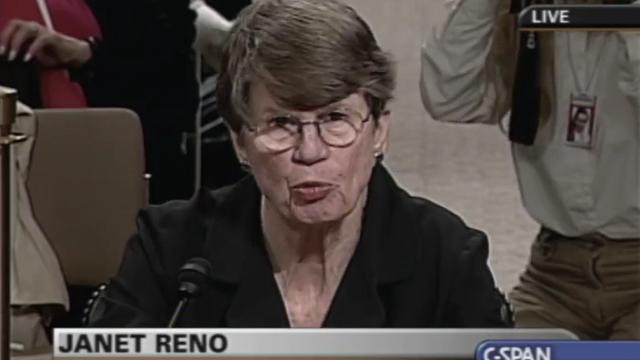
Former administration law enforcement officials testified about intelligence gathering by the Justice Department and the FBI prior to the September 11, 2001 terrorist attacks on the U.S., intelligence sharing with other agencies, and the approach taken by law enforcement agencies to counterterrorism efforts.
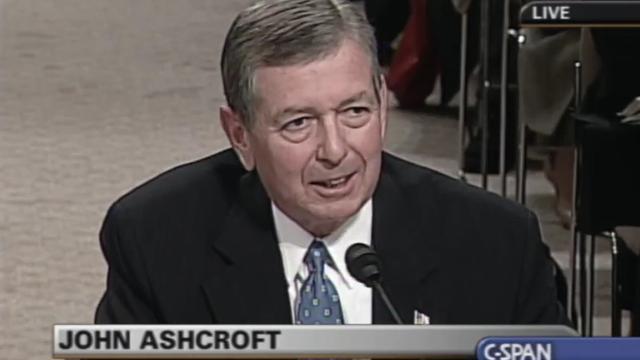
Current and former law enforcement officials testified about the September 11, 2001 terrorist attacks on the U.S. Among the topics they addressed were intelligence gathering and sharing procedures before and after the attacks, the degree of attention given to terrorist threats by the Clinton and Bush administrations, and enforcement of laws to deter terrorism in the U.S.
April 14, 2004
The two-day hearing examined the performance of law enforcement and the Intelligence Community prior to September 11 and evaluated post-9/11 reforms in these areas.
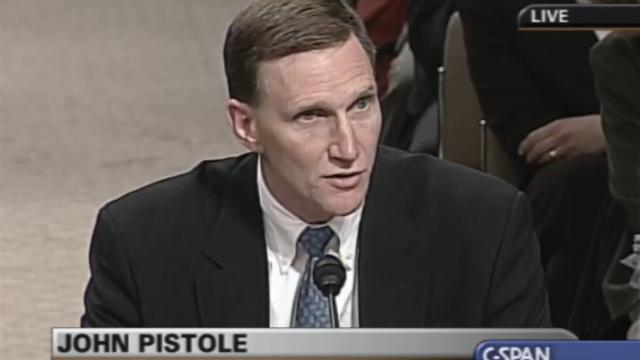
Committee staff offered preliminary reports on intelligence failures, agency performance, and information sharing on the September 11, 2001 terrorist attacks on the U.S. Administration officials then testified about the findings and their roles in intelligence gathering and sharing, as well as the future of U.S. intelligence efforts and agencies.
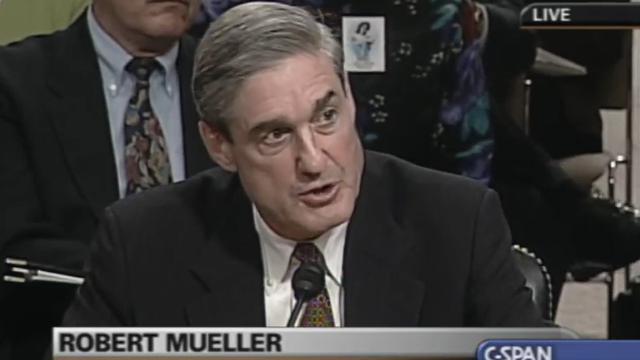
Staff members of the 911 Commission presented preliminary findings on intelligence gathering and dissemination at the Federal Bureau of Investigation before and after the September 11, 2001, terrorist attacks on the United States. FBI Director Mueller then testified about reforms made after the attacks and law enforcement efforts associated with counterterrorism efforts.
Public Hearing #11
Recording of the eleventh public hearing held by the National Commission on Terrorist Attacks upon the United States on at New School University in New York City.
May 18, 2004
The two-day hearing examined the response of local and federal emergency response departments on September 11, 2001, and considered how to improve these critical functions in the event of future terrorist attacks.
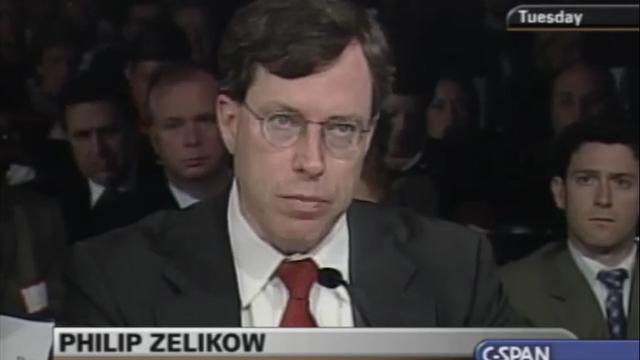
Staff members of the September 11th Commission presented their report focusing on communication problems within and between responding agencies, the accuracy of information given from and supplied to the public, and the efficiency of the evacuation process. During their presentation they used video interviews of survivors and graphic visual aids.
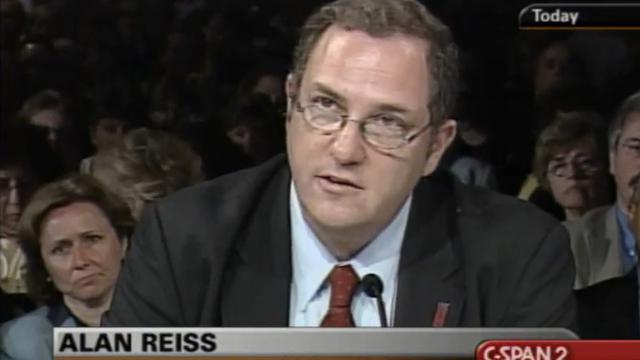
Emergency response officials testified about communications between emergency response agencies, and efforts taken to improve emergency response techniques in response to the World Trade Center attacks.
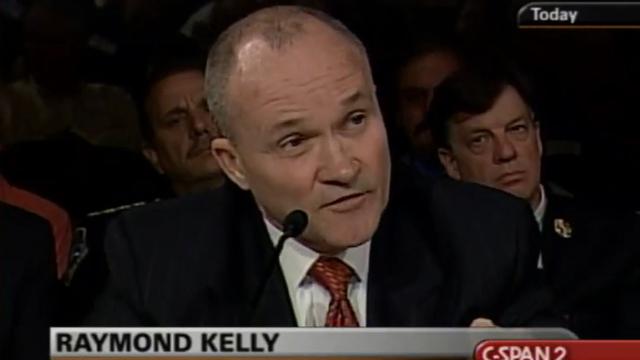
New York emergency response officials testified about communications between responding agencies, counterterrorism programs implemented since the attacks, and improvements made in emergency response plans.
May 19, 2004
The two-day hearing examined the response of local and federal emergency response departments on September 11, 2001, and considered how to improve these critical functions in the event of future terrorist attacks.
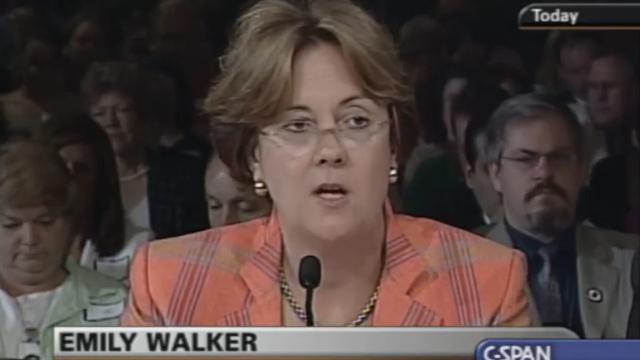
September 11 Commission staff members presented a report focusing on communications between response agencies during the response, lessons learned from the rescue efforts, and ways to improve integrated command structures in future emergencies.
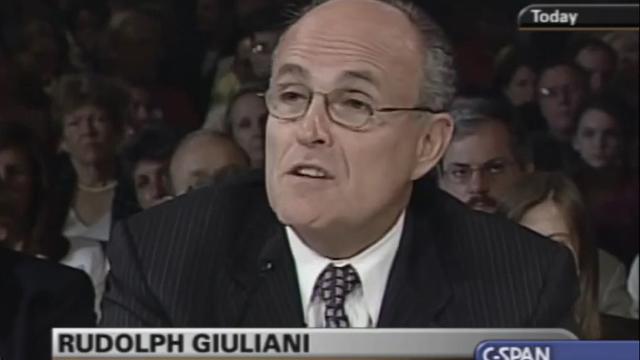
Former Mayor Giuliani testified regarding the effectiveness of emergency response by the fire and police departments, the heroism displayed by officials and civilians on that day, problems experienced while reacting to the event, and subsequent reforms to improve emergency response to a catastrophic event.
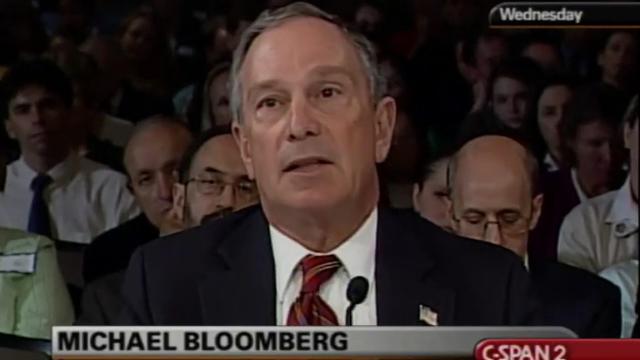
Witnesses talked about how various localities prepare first-responders and coordinate rescue efforts. They discussed plans and preparations made both prior to and since the attacks. Among the other topics addressed were interagency cooperation, communications interoperability, and continuing operations following the loss of command.
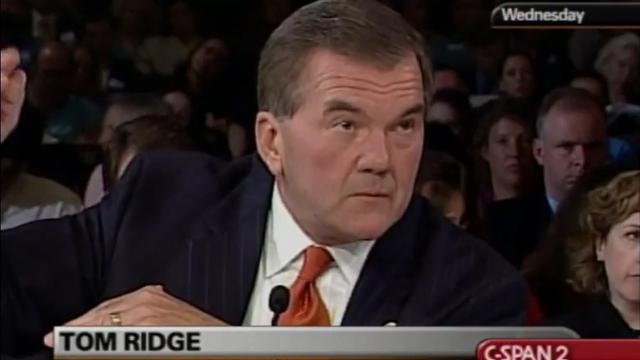
Secretary Ridge testified regarding the creation and role of the Department of Homeland Security, new airline and border security measures, cargo screening procedures, biological attack preparations, and increasing resources for first responders.
Public Hearing #12
Recording of the twelfth public hearing held by the National Commission on Terrorist Attacks upon the United States at the NTSB Conference Center in Washington, D.C.
June 16, 2004
The two-day hearing focused on two distinct topics: the 9-11 Plot and the federal government’s immediate response to the attacks on September 11, 2001.
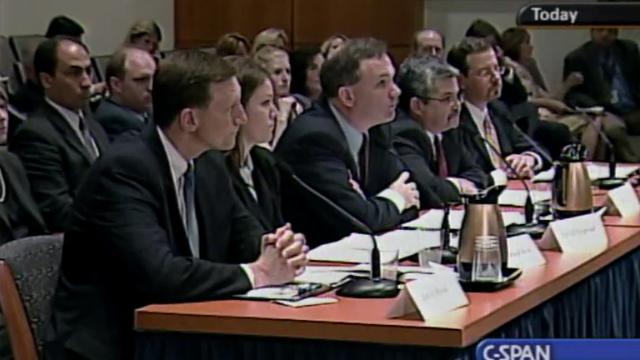
Commission staff offered a statement on the history of al Qaeda. Intelligence officials testified about the use of commercial aircraft as weapons of terror. They outlined the details of the 9/11 attack and the plan’s various iterations prior to execution. Commission members also talked about the alleged link between al-Qaeda and Iraqi President Saddam Hussein.
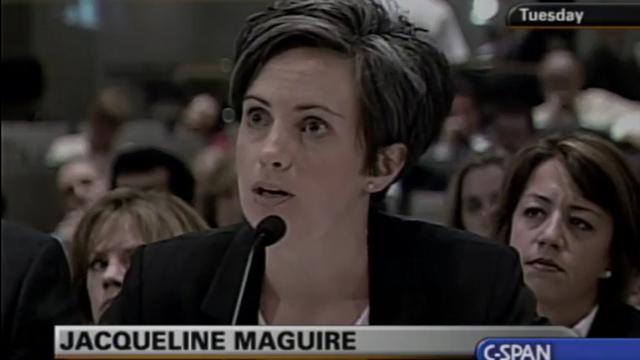
Committee staff members and intelligence officials testified about the development and execution of the plot to use commercial aircraft as weapons of terror in an attack on major U.S. landmarks and government facilities. Staff reports outlined the basis of the plot and detailed how the plans were carried out and changed over several years. The commission also found that there was no evidence of any link between al-Qaida and Iraqi President Saddam Hussein.
June 17, 2004
The two-day hearing focused on two distinct topics: the 9-11 Plot and the federal government’s immediate response to the attacks on September 11, 2001.
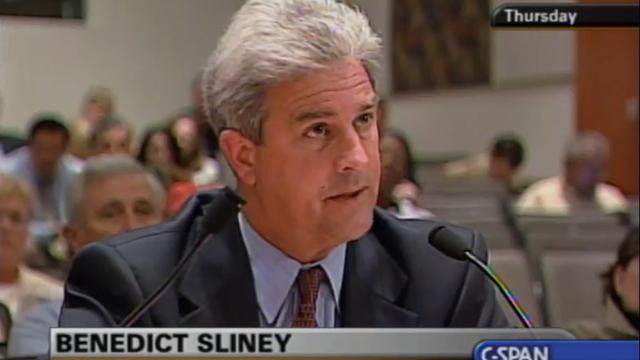
Following a report by Commission staff members, a panel of military officials responded to the report and commission questions about the military response to the attacks. A third panel of aviation officials talked about the Federal Aviation Administration’s response to the events, including flight path charts of the four airplanes. Among the issues addressed were failures in communication between agencies, training for catastrophic events, and changes made since the attacks.
Final Report
Recording of a press conference held by the National Commission on Terrorist Attacks upon the United States to announce the release of the final report and discuss the findings of the commission.
July 22, 2004